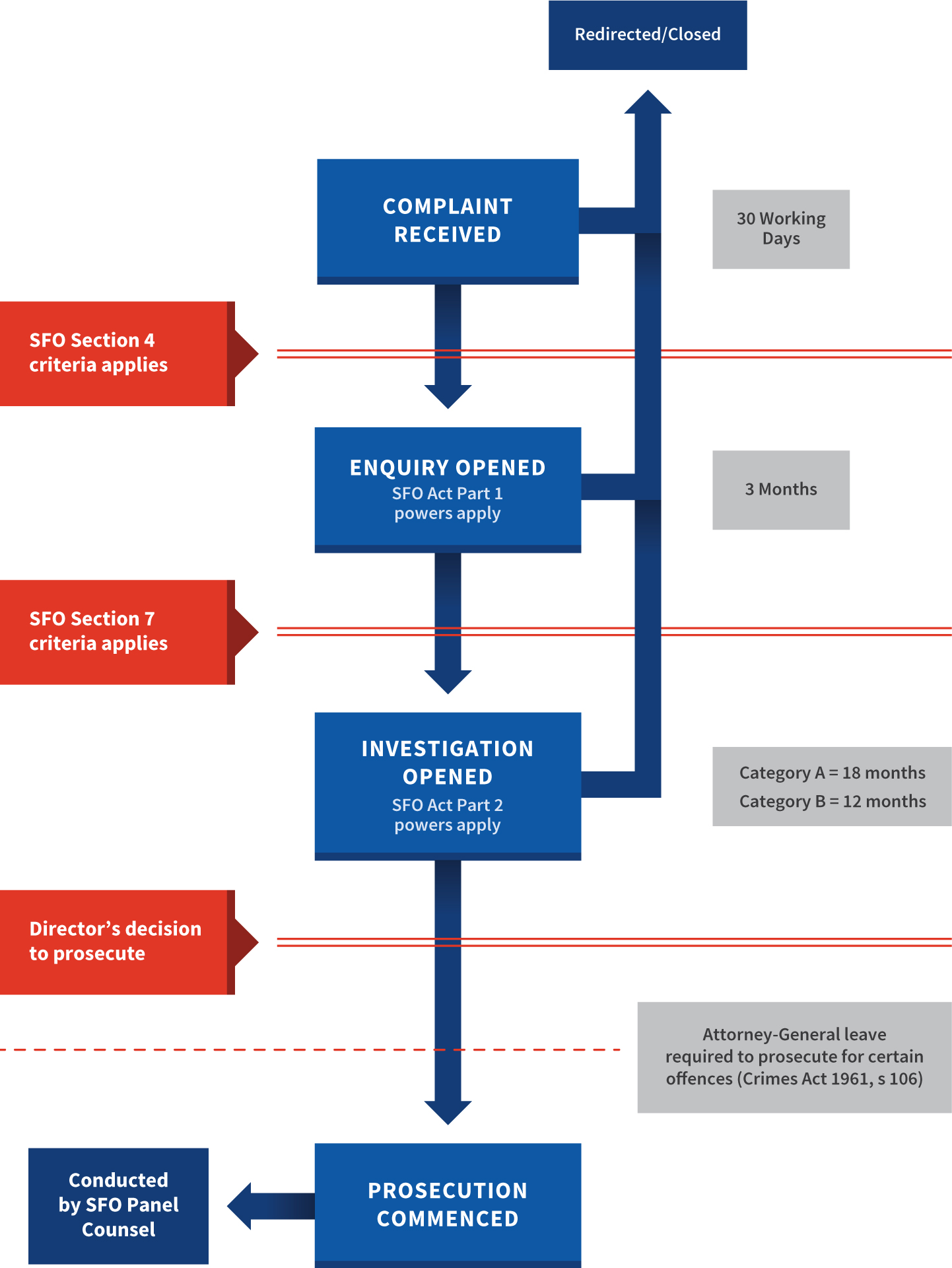Legislation
The Serious Fraud Office is the lead law enforcement agency for investigating and prosecuting serious financial crime. The SFO also works to prevent financial crime and corruption in New Zealand’s public sector by providing guidance and raising awareness.
Investigations
The Serious Fraud Office Act 1990(external link) (the SFO Act) sets out a framework for the SFO to conduct its investigations, including its search powers which can be found in sections 5, 9 and 10. The SFO does not come within the provisions of the Search and Surveillance Act 2012.
The operation of the SFO is guided by the SFO Act. A broad overview of this process is set out below.

Offences
The SFO has a narrow remit under the SFO Act to detect, investigate and prosecute the commission of offences that come within the definition of “serious or complex fraud”. While there is no criminal offence of fraud, there are a number of offences that could come within the definition of fraud. To assist the Director to determine whether the offence under investigation comes within the definition of “serious or complex fraud” the SFO Act has a set of criteria listed in section 8 that the Director may consider. These criteria include:
(a) The suspected nature and consequences of the fraud
(b) The suspected scale of the fraud
(c) The legal, factual, and evidential complexity of the matter
(d) Any relevant public interest considerations.
The primary offences that are usually subject to the SFO prosecutions can be found in the Crimes Act 1961 and the Secret Commissions Act 1910.
Prosecution decision-making
The decision to prosecute a person is made by the Director of the Serious Fraud Office, who is guided by the Solicitor-General Prosecution Guidelines(external link) and the SFO’s Prosecution Policy.
The SFO Act provides for the establishment of a panel of specialist lawyers who are appointed by the Solicitor-General to conduct the SFO’s prosecutions. Proceedings in relation to the prosecution of serious or complex fraud are taken on behalf of the Director and subject to the Director’s instruction until the Solicitor-General assumes responsibility for the prosecution in accordance with the Crown Prosecution Regulations 2013.
Offences of corruption require the leave of the Attorney-General before the SFO commences a proceeding.
